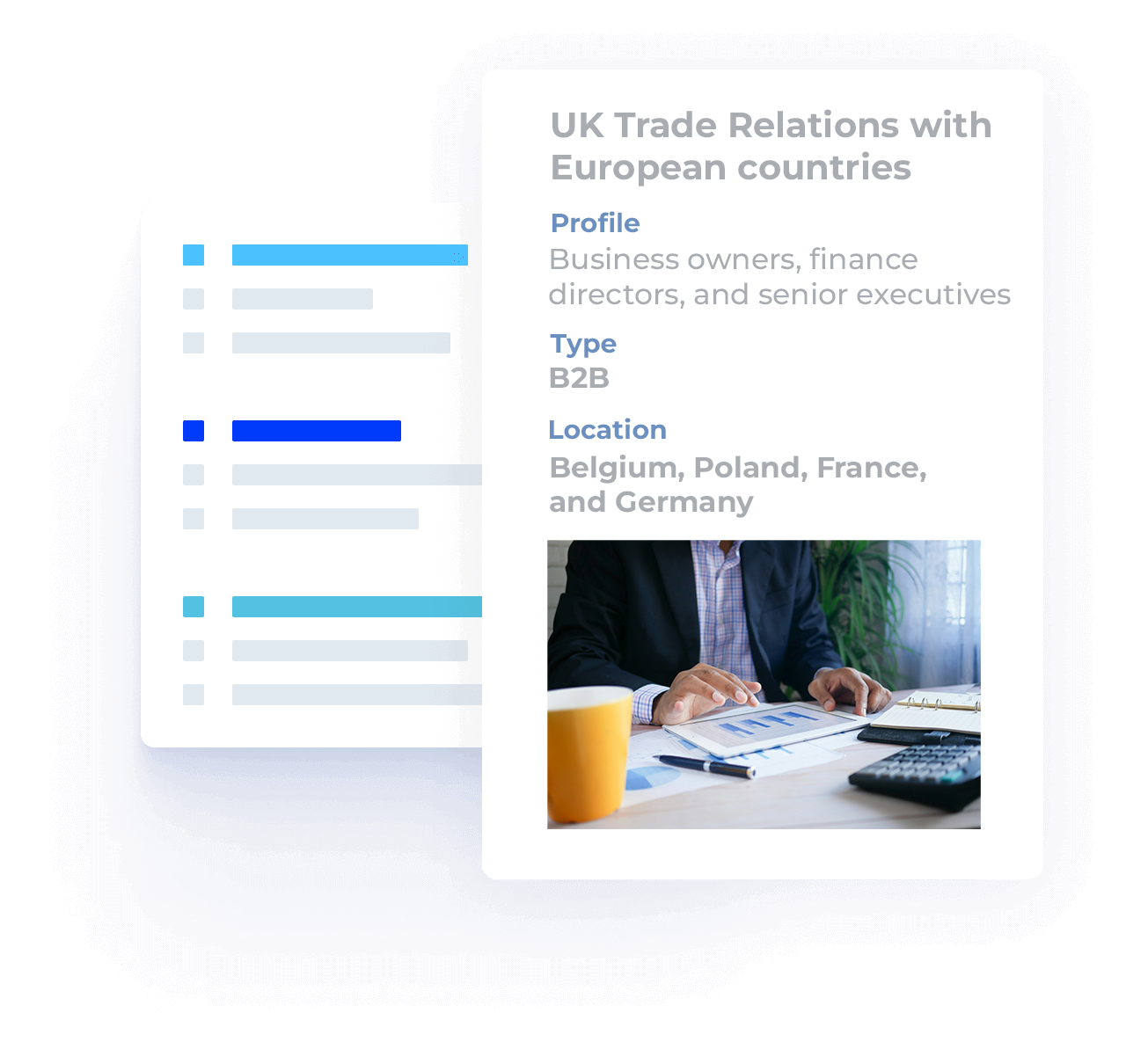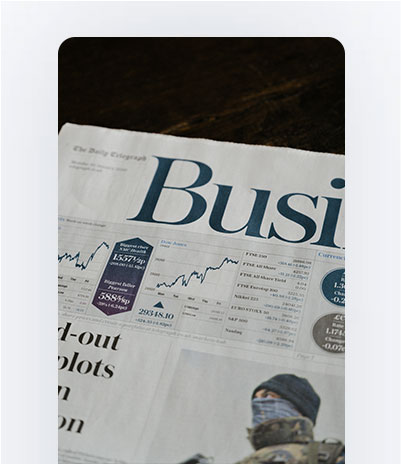B2B Recruitment
Insights into current UK Trade Relations with specific European countries
Gathering insights into Trade Relations between the United Kingdom and four key European nations: Belgium, Poland, France, and Germany.

Project Name
Gathering insights into Trade Relations between the United Kingdom and four key European nations.
Projects Timeline
3 weeks, Q1 2025
Services
Sample Selection
Research Type
B2B Sampling
Table of Contents
Key Metrics
Highly-targeted Respondents
Countries
Weeks
1
Project Background
We ran a qualitative research project to delve into the trade activities between the United Kingdom and four key European nations: Belgium, Poland, France, and Germany. The primary objective was to gain a comprehensive understanding of the experiences, challenges, and future plans of businesses engaged in importing and exporting goods and services between the UK and these countries.
2
Project Challenges
One of the biggest challenges in this research was identifying companies that still engage in trade with the UK. The vast majority of businesses we contacted reported that they had either completely ceased or significantly reduced their trade with the UK. The primary reason cited was the increased costs and complexities associated with trading post-Brexit, including higher tariffs, customs procedures, and regulatory barriers. This made it particularly difficult to recruit participants with recent and relevant trade experiences, requiring a more targeted and strategic approach to sampling.



3
Solution Provided
To overcome the challenge of finding businesses still trading with the UK, we utilized a pre-filtered dataset of companies actively engaged in import and export across Europe and globally. This ensured that our outreach targeted businesses with ongoing international trade operations.
For participant recruitment, we leveraged LinkedIn and email campaigns to directly connect with key decision-makers, such as export managers, trade directors, and supply chain specialists. This approach allowed us to efficiently identify and engage businesses that could provide valuable insights into current UK trade dynamics.
4
Sampling Process
The study employed a qualitative approach, conducting 45-minute online interviews with key decision-makers who had a deep understanding of their company’s trade practices with the UK. Participants included Business Owners, Managing Directors, CEOs, CFOs, Finance Directors, and other senior executives responsible for overseeing international trade operations and an incentive was offered following the seniority of this target group for their participation.
Targeting
Industry Targeting
To ensure diverse representation, companies of all sizes were included, ranging from micro-enterprises and small businesses to medium and large corporations. The research covered a wide range of industry sectors, including manufacturing, production, and utilities (NACE A-F), wholesale and retail (NACE G), and various service industries (NACE H-S). This approach provided a comprehensive view of the current trade landscape between the UK and the target countries.
5
Results and Outcomes
The cognitive interviews lasted a week and were conducted with 15 participants from the named countries. These discussions provided valuable insights into the current trade dynamics between the UK and Belgium, Poland, France, and Germany, highlighting the key challenges and opportunities businesses face in maintaining cross-border trade.
Results
Lorem ipsum
Key Take-aways
Lorem ipsum
6
Conclusions
Through interviews with senior decision-makers from a range of businesses, we were able to explore the challenges and opportunities faced by companies still engaged in trade with the UK.
While many businesses have reduced or ceased their trade with the UK post-Brexit due to increased costs and regulatory complexities, the research also highlighted a strong desire for continued or expanded trade, provided that future barriers can be mitigated. The findings underline the importance of addressing issues such as tariffs, customs procedures, and logistical disruptions to facilitate smoother trade relationships.






